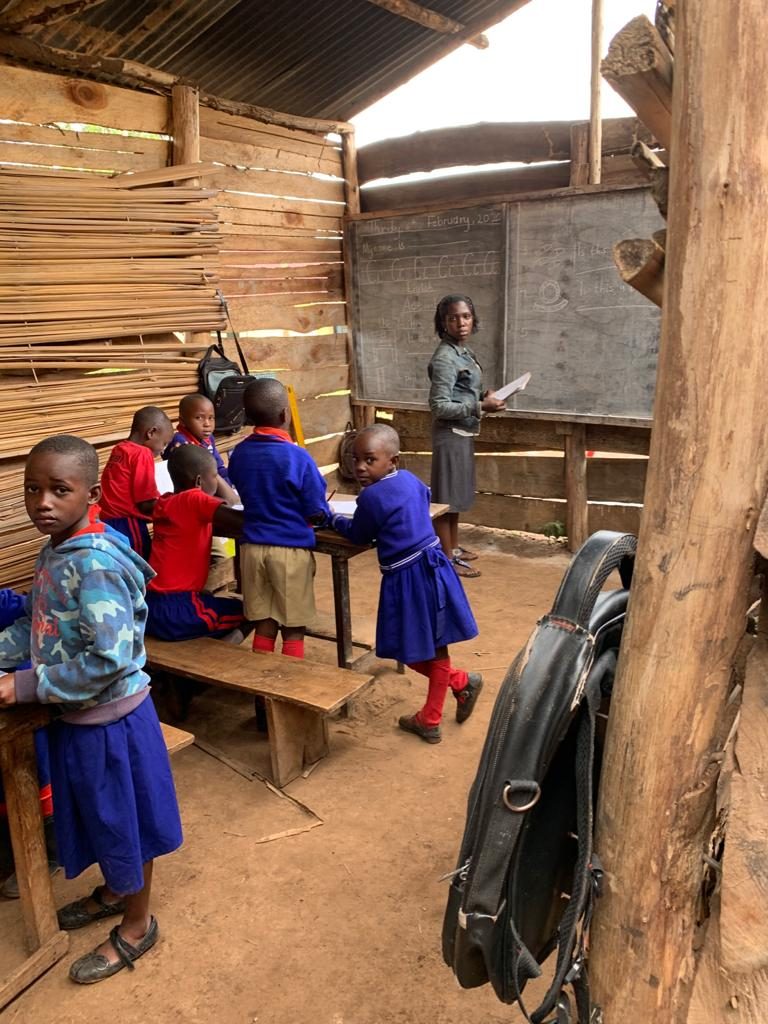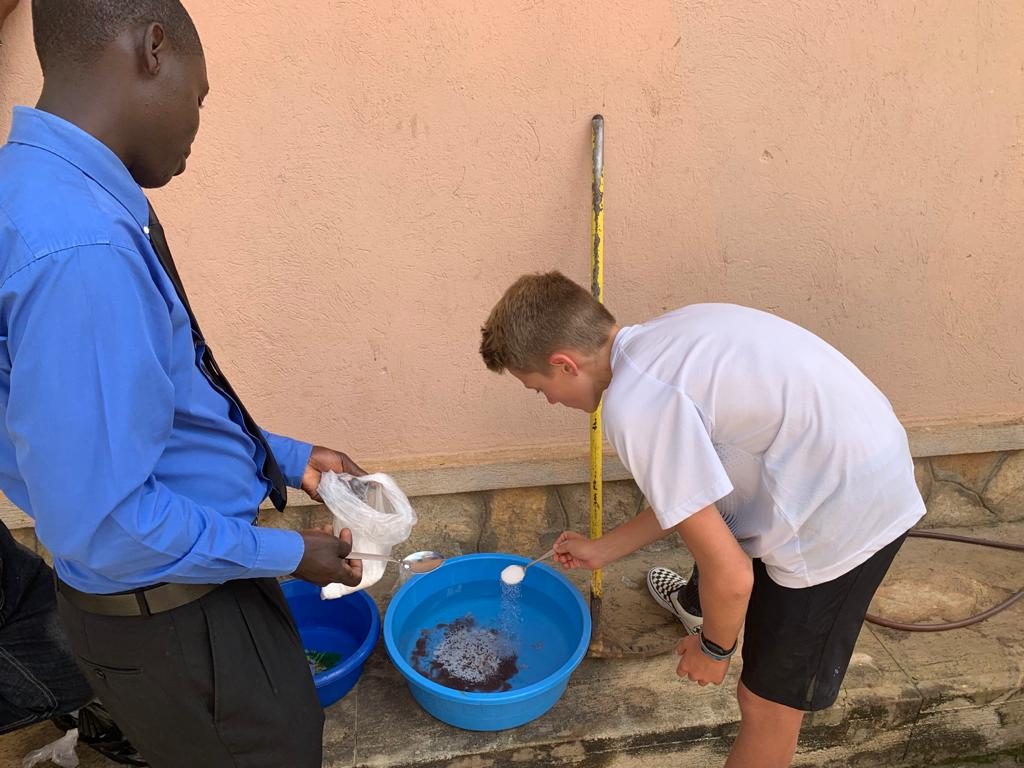
Febuary 8 2019
By Haakon
I have been in Uganda since the 1st, so far four days in Kampala, and since then we have been in Nasawo. This is a village where people make a living farming. There are banana and coffee tree fields, people raise chickens and pigs, they grow their own vegetables mostly. The primary schools do not have electricity, nor glass windows. There is one pit latrine for all the students to use and there is a sink to wash hands, but I did not see soap. Dysentery is one of the highest causes of death for small children, good hand hygiene helps to prevent its spread, so soap is very important. I also noticed the clinic had no soap to wash your hands in the bathrooms. It’s sad to think about, say a woman goes to the bathroom, now her hands are dirty from the bathroom; she then puts her hands on the bed where she is recovering after delivery and caring for her new baby. Now with bathroom germs getting on surfaces, it’s not sanitary for anyone. It makes me wonder if childbirth and check-ups could be made safer if there was just some soap in the bathroom?
So, my mom and I started brain storming ideas that Siri and I could begin to help this problem during the next two weeks, or at least get some system laid down to solve this problem over time. We decided we want to learn how to make soap, then teach a trusted adult figure in the village how to make it safely for example the clinic lab tech or teachers at the Secondary School. Also teachers and the nurse can teach about the benefits of hand hygiene. However, there are a couple draw backs. One, we have to find where we can buy the chemical ingredients for the soap. Two, we need to figure out who can make the soap and how they can learn to make the soap. We are thinking of going to the local high school and asking if they would be willing to teach how to make soap in chemistry class because making soap is a great science project, you have to mix the chemical ingredients correctly otherwise its not safe and it doesn’t turn out just like many other chemistry experiments. The last big drawback is if we want to make solid soap it takes around a month to cure, so we may learn to make liquid soap instead.

I also want to start making hand soap when I get to Seattle and all of the proceeds could go to getting new schools books that will excel the children’s learning. There are many very dedicated teachers in these small villages, but they do not have adequate learning supplies so they can only teach the kids so much. Children are taught in English which is their second language. For example, 9-year old’s are learning how to break up the words (like banana into ba-na-na) which we learned in kindergarten.
I feel most of the kids, if not all of the local kids here have an incredible struggle to make a better future for themselves with what they have. I’m not trying to say they can’t but the resources and lack of funding here is extraordinary. Private school fees are expensive for people here. Even if the parents send their child to a government funded school, it isn’t always worth it because the kids could be better help at home; especially on the days the teacher doesn’t show up. Their wages are so low that if its planting or harvest time, the teachers might stay home and work in their garden instead of go to work.
This is the project I will be working on for the next two weeks along with getting to know the locals, playing, and working with them. I will hopefully find a way to make the soaps with the help of my mom, Siri, and Deborah (a local family friend), feel free to ask any questions or give suggestions. I’ll let you know how it goes.
I’ll be very interested to hear how your soap project goes. It is amazing what we take for granted at home!